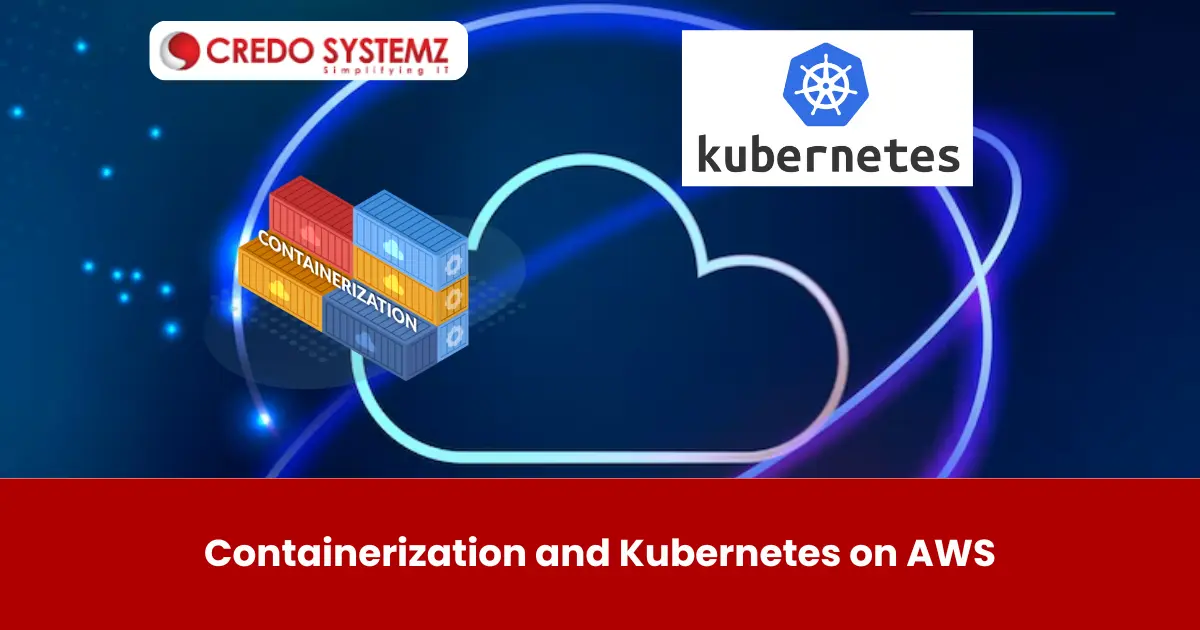
Introduction
In today’s technical field, Containerization and orchestration platforms have emerged as powerful key components of modern cloud application development and deployment. When combined with Amazon Web Services (AWS), these technologies provide a robust foundation for building and maintaining scalable, and secure cloud-native applications.
Containerization
Containerization is the widely adopted technology that combines applications along with their dependencies, libraries, and configuration files into a lightweight, portable unit known as a container. It offers efficient resource utilization and consistent running of applications across various deployment stages.
Key advantages of containerization
The important advantages of containerization are:
Efficiency:
Containers are lightweight, more efficient than traditional virtual machines. They share the host operating system’s kernel which reduces the overhead associated with running multiple OS instances. Containers start quickly, and use fewer resources than VMs.
Portability:
Organizations can move containerized applications between on-premises data centers and various cloud providers. Containers are portable and consistently run across different environments like development, testing, production and cloud platforms.
Consistency
Containers package the application code with all its dependencies that ensure that the applications behave consistently across different environments. Developers can test applications in containers that mirror production environments.
Accelerated development
To enable rapid development, testing, and deployment, Containers are integral to modern DevOps practices through automated CI/CD pipelines. In containers, each service can be independently scaled, updated, and deployed.
Scalability
Containers can be easily scaled up or down based on demand, so they are ideal for handling dynamic workloads. Organizations can automate the deployment, scaling, and management of containerized applications across clusters of machines.
Isolation
Applications are isolated in their containers, that prevents conflicts between dependencies and improving security. Tools and platforms are available to enhance container security.
Kubernetes
Kubernetes is the widely adopted open-source container orchestration platform which is essential for managing containerized applications. It automates the deployment, scaling, and management of containerized applications with a vast ecosystem and strong community support.
Key Features of Kubernetes
The important features of Kubernetes are:
- Automation of deployment, scaling and management with rollouts and rollbacks
- Failed containers are automatically replaced to ensure optimal performance.
- Horizontal scaling of applications based on demand to manage resources efficiently.
- Service discovery and load balancing ensure smooth communication between containers.
- Kubernetes is well-suited for microservices architecture in which applications are broken down into independent services.
AWS: The Ideal Cloud Platform for Kubernetes
Amazon Web Services (AWS) is the most popular comprehensive cloud platform that provides a wide range of services and tools to deploy, manage, and scale applications. The global infrastructure of AWS with its security is ideal environment for running Kubernetes. AWS offers Amazon Elastic Kubernetes Service (EKS) that simplifies the process of running Kubernetes on AWS.
Key Benefits of Using Kubernetes on AWS
The key benefits of Kubernetes on AWS are:
- Managed kubernetes service enables developers to concentrate on application development.
- EKS integrates seamlessly with other AWS services that provides a complete ecosystem. AWS’s global
- infrastructure ensure high availability and fault tolerance.
- AWS provides advanced security features to secure Kubernetes clusters and the applications running within them.
- With Kubernetes on AWS, organizations can optimize costs by scaling resources dynamically based on demand.
Conclusion
To sum up, containerization and kubernetes is the revolutionary way of developing, deploying, and managing that offers flexibility, scalability, and resilience. When combined with the power of AWS, organizations can harness the full potential of cloud-native applications. By leveraging AWS’s managed services, businesses can deploy Kubernetes clusters quickly and easily. To stay in the competitive market, join our AWS course in Chennai along with docker Kubernentes training in Chennai.
Join Credo Systemz Software Courses in Chennai at Credo Systemz OMR, Credo Systemz Velachery to kick-start or uplift your career path.
